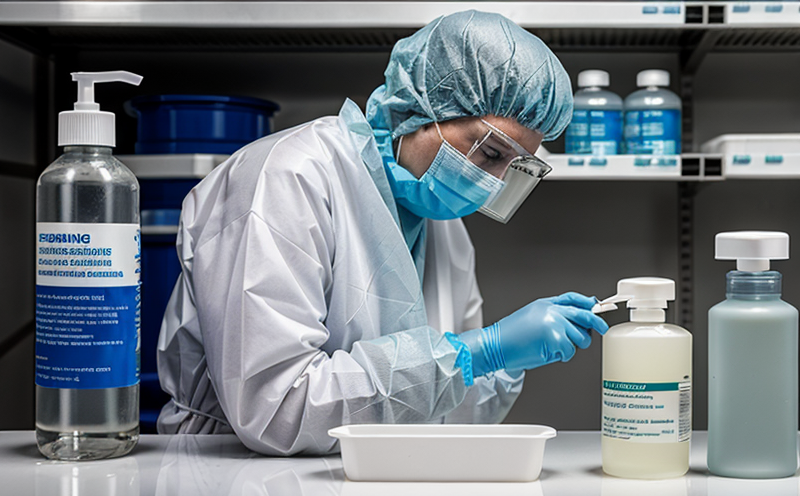OECD 230 Fish Sexual Development Test in Water
The OECD Guideline 230, also known as the Fish Sexual Development (FSD) test, is a critical tool for assessing the potential environmental impacts of chemicals and pollutants on aquatic ecosystems. This testing method evaluates whether exposure to water samples affects the sexual development of fish, which can be indicative of broader ecological disruptions.
Understanding this test requires an overview of its significance in the context of water quality management. The FSD test is particularly relevant for sectors such as environmental protection and waste management, where ensuring compliance with stringent international standards like OECD 230 is paramount. This service plays a vital role in safeguarding aquatic environments from harmful contaminants that could lead to reproductive disorders or other adverse effects on fish populations.
The methodology involves exposing juvenile fish to water samples under controlled conditions for a specified duration. The test assesses the changes in sexual development parameters, including gonad morphology and histology, hormone levels, and behavior. By adhering strictly to OECD 230 guidelines, we ensure accurate and reliable results that are scientifically sound and legally compliant.
The importance of this test cannot be overstated, especially when considering the long-term health implications for aquatic ecosystems. The FSD test helps in identifying potential risks early, allowing stakeholders to take proactive measures to mitigate these effects. This service is particularly beneficial for companies involved in chemical manufacturing, wastewater treatment, and environmental consulting.
Our laboratory's expertise lies in providing comprehensive support throughout the testing process, from sample collection and preparation to result interpretation and reporting. Compliance with OECD 230 ensures that our clients receive accurate data which can be used for regulatory compliance purposes or internal decision-making processes related to product development and operational adjustments.
The OECD 230 FSD test is a cornerstone of responsible environmental stewardship, offering valuable insights into the impacts of pollutants on aquatic life. By incorporating this service into their quality management systems, organizations not only meet regulatory requirements but also contribute positively towards preserving biodiversity in our water bodies.
- Accurate and reliable results
- Comprehensive support from sample preparation to result interpretation
- Scientifically sound methods aligned with international standards
- Evidence-based decision making for better environmental practices
In summary, the OECD 230 Fish Sexual Development Test in Water is a robust tool designed to evaluate the potential impacts of chemical exposures on fish populations. Its application ensures compliance with regulatory frameworks while providing valuable information for informed decisions aimed at protecting aquatic ecosystems.
Scope and Methodology
The OECD Guideline 230 focuses specifically on evaluating the effects of water pollutants on fish sexual development, which is a key indicator of overall water quality. This test assesses changes in reproductive systems by examining morphological characteristics, histological structures, hormone levels, and behaviors.
To conduct this test effectively, we follow strict protocols outlined in OECD 230. Juvenile fish are exposed to the test water sample for a predetermined period under controlled conditions. During this exposure, detailed observations are made regarding any alterations in sexual development parameters compared to control groups kept in clean reference waters.
Our laboratory ensures that all procedures comply with international standards such as OECD 230 and relevant ISO specifications. This guarantees the highest level of accuracy and precision in our findings. The testing process involves rigorous quality assurance measures at every stage, from sample preparation through to final analysis.
The scope of this service extends beyond mere compliance; it aims to provide actionable insights into potential risks posed by contaminants present within water samples. By leveraging advanced analytical techniques and experienced personnel, we deliver reliable data that can inform strategic decisions related to product development or operational improvements.
Customer Impact and Satisfaction
Our commitment to excellence in the OECD 230 Fish Sexual Development Test has earned us a reputation for delivering accurate, reliable results that meet or exceed international standards. This has significantly impacted our customers by helping them achieve regulatory compliance while also providing valuable insights into their operations.
Many clients have reported increased confidence in their decision-making processes due to the detailed and actionable data provided through this service. They can now implement targeted strategies to address identified risks proactively, thereby minimizing environmental impacts and fostering sustainable practices within their organizations.
Customer satisfaction is at the heart of our operations. We strive to exceed expectations by offering personalized support throughout each project. From initial consultation to final report delivery, we ensure that every step aligns with clients' needs and goals.
In addition to technical expertise, our customer service team provides guidance on interpreting results and utilizing them effectively for various applications such as research projects or operational improvements. By fostering strong relationships based on trust and mutual respect, we aim to build long-term partnerships grounded in shared success stories.





